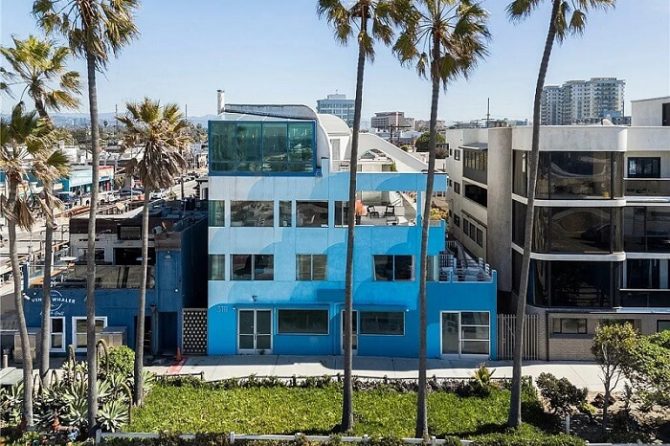It may come at a higher price, but the Santa Monica Redevelopment Agency (RDA) will “continue to operate” thanks to an ordinance that the municipality’s city council and RDA members unanimously passed at City Hall on Aug. 9, albeit in protest.
The ordinance in protest was in front of the Santa Monica City Council after Gov. Jerry Brown signed two bills in June relating to RDAs in California. One bill eliminated all redevelopment agencies in the state, while the second bill allows redevelopment agencies to continue to operate “if they agree to make huge ransom payments to the state,” said Andy Agle, director of Santa Monica’s Housing and Economic Development.
“The legislation prohibits any redevelopment actions until the city has adopted an ordinance signaling its intent to make the ransom payment,” Agle told council members. “For Santa Monica, the first year ransom payment is nearly $27 million, with ongoing payments estimated at $6.4 million per year.”
He added that by passing the proposed ordinance, the RDA in Santa Monica would continue to operate despite ABX1 26, which “purports to suspend all activities (except enforceable obligations) of the Santa Monica Redevelopment Agency as of June 29, 2011, dissolve the Agency as of October 1, 2011, and liquidate the assets of the Agency subsequent to dissolution”
The signing of ABX1 27 would only allow the City to continue operating the RDA if “it agrees to pay the remittance amount determined due by the State Department of Finance to the County Auditor-Controller.”
Several groups, including California League of Cities and California Redevelopment Agency, have filed a lawsuit challenging the constitutionality of both bills signed into law by Brown. The suit also requests a stay of implementation of legislation.
“While litigation is underway, staff recommends that the council adopt the proposed ordinance under protest to continue the Santa Monica Redevelopment Agency,” Agle said, adding council must also be prepared to direct payments to be made to the state should the court not grant the stay and should the legislation be fully implemented.
Local activist Jerry Rubin said, considering the current economic climate, it was disappointing to see the state move forward with Brown’s plan to all but eliminate RDAs across California.
“I think (Gov. Brown) made a big mistake in doing this, because it really hurts local cities. It’s a terrible move. I urge you to do a strong protest,” he told council members.
While the City may pay more than $33 million to the state just to keep RDA alive and running, Council member Kevin McKeown said the move was worthwhile.
“By keeping our redevelopment agency alive, even under protest… we enable ourselves to continue with the projects that we have promised the residents,” McKeown said. “These include projects for parks, for education, for cultural facilities, for libraries. These are things that are important to the people of Santa Monica. By taking this action tonight, we allow ourselves to continue to move forward.”
However, Council member Bobby Shriver was cautiously concerned about the financial ramifications of enacting the proposed ordinance and asked City Manager Rod Gould what portions of the City’s general fund would be at risk.
“The sole funds that are at risk here are what are known as tax increment funds, which are the central funding source of redevelopment activities in California. This is separate and distinct from the tax revenues that go into the City’s general fund,” Gould said. “What the State of California is trying to do is to extract $1.7 billion worth of tax increment funds from the various redevelopment agencies throughout the state in order to help balance the current year budget.
“At no time would the City general fund be involved in this transaction.”
Gould added the City has enough money to make the $27 million and $6.4 million payments, as well as meet the contractual obligations it entered into for redevelopment projects.
As part of its action in conjunction with its joint duties as agency members, council and agency members also authorized a remittance agreement to transfer funds to the City in order to make necessary payments to the state if and when they become required.
Mayor Richard Bloom and Council member Pam O’Connor were not present at the Aug. 9 meeting.











